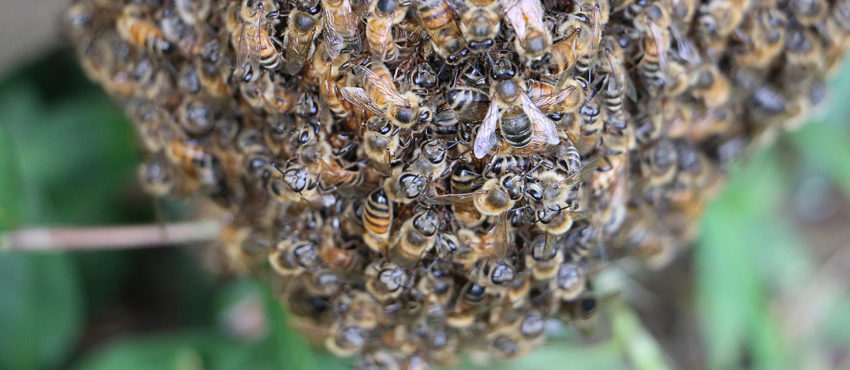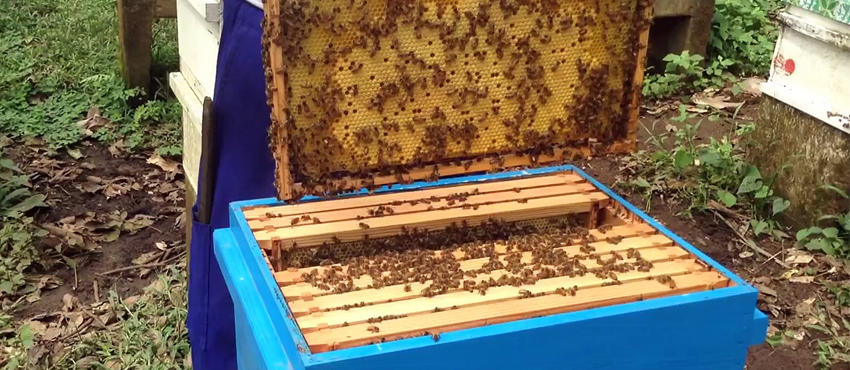
Bee farming is a relatively new endeavour in the Philippines – to date, the majority of related products have been imported from other countries, particularly Australia, China, and the USA. However, the local climate around Antipolo is extremely favourable for beekeeping, with year-round sunshine and suitable rainfall distribution providing the perfect environment for the bee-farming industry.
There is enormous scope for development within the production of bee-related products, including the cultivation of items that use honey, royal jelly, beeswax, and honeycomb as their primary ingredients. With the aid of MSC funding, the Philippines beekeeping project can begin to develop the potential of this local treasure, while bringing a valuable source of social development to an area where opportunities are extremely limited.

Promoting self-sufficiency
People in the Philippines have long been aware of the benefits of honey, including its health benefits and its uses in boosting the immune system. However, a lack of local produce and expensive imported products mean that there are an abundance of fake honey-based products on the market throughout the country. The launch of this project allows local people to avoid these inferior, often overpriced items, while promoting independent local business in Antipolo and its surrounding areas, and providing the community with an authentic, high-quality product.
With the aid of our mission friends, MSCs in the Philippines hope to achieve a number of goals as they undertake this beekeeping project. These aims include:
- Increasing employment opportunities for local people.
- Developing independent local business.
- Educating eligible candidates in the beekeeping process with full training for all involved.
- Promoting awareness of the biodiversity and ecology of the area.
- Developing specialised skills amongst the locals, particularly the Dumagat Remontado (indigenous people of Antipolo), and eventually extending these opportunities to the Banti Mindoro Occidental (Mangyan indigenous people).
Thanks to the generosity of mission friends in Ireland and the UK, the Irish Province of the Missionaries of the Sacred Heart were able to donate necessary funds to the MSC Missions Office in the Philippines in 2016, and the first phase has now been launched with a training seminar, which took place in February 2017. With participants joining in from the local communities of Antipolo, Bulacan, and Tagayatay, this new knowledge can now be carried back to the different localities, encouraging growth in each of these regions.
Jahms Morga, one of the organisers of the beekeeping programme, spoke about the success of the first training seminar:
“We are so grateful to all of the people who supported us in making this programme happen, especially the Irish Province of the Missionaries of the Sacred Heart and the MSC Mission Support Centre. This first seminar will generate more training programmes, meaning more opportunities for livelihood for local people. We are also encouraging participants to support our future training programmes by giving back a percentage of their profit to the production and harvest of the honeybee. It is our great plan to bring this programme to as many communities as we can.
On behalf of all the people who took part in the training programme, we thank you for your generosity and kindness in making all of this possible. God bless and more power.”
With the help of MSC mission friends around the world, residents of Antipolo and its surrounding areas can enjoy the advantages of self-motivation and self-sufficiency, while the potential for further development of this project promises a healthy boost for the local economy for years to come.